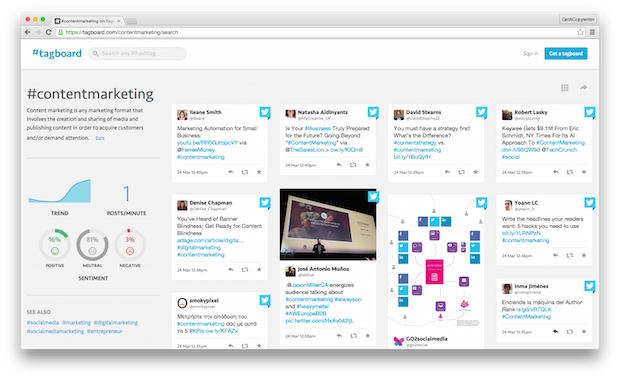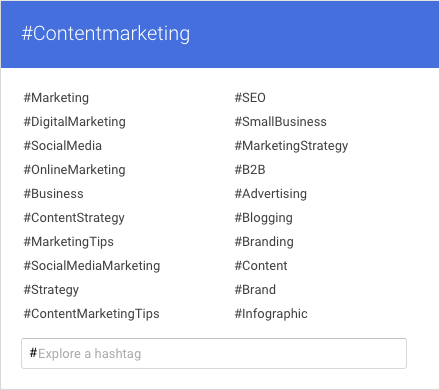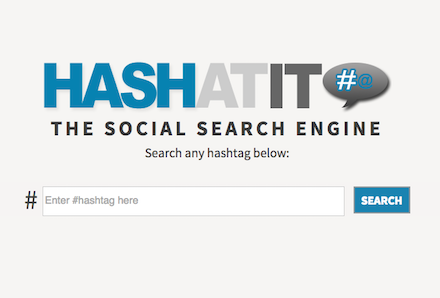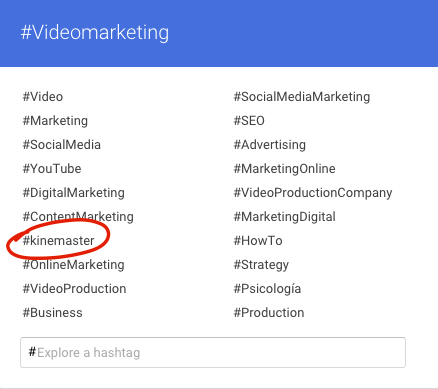Hashtag Search:What, How, and Why
What?
By now, everyone knows what a hashtag is, but what exactly is a hashtag search, and how does that relate to the SERP? Our handy guide will help you separate fact from fiction, give you a little something to think about, and hopefully send you on your way toward a hashtag success story.
Let’s dive in, and separate the facts from fiction. #keepitreal

Hashtag Facts & Fiction
Fact: Hashtag searches are not exclusive to Twitter, but they can also be performed within Google+, Facebook, Instagram, Pinterest, Tumblr, & Vine. Each outlet has its own system, click on those links for additional help or explanation.
Fact: There are search engines made exclusively for hashtag searches. Some are free, and some are freeish. Some examples:
Fact: Up to 75% of people on social media use hashtags. Hat Tip: VentureBeat
Is there one sentence that sums up the hashtag, and its importance to marketers?
Yes.
Hashtag marketing can help brands become part of the conversation within trending topics
Click to tweet
Fiction: Using trending hashtags will enable your posts to show up in the SERP. If we’re wrong on this one, give us a shout out on twitter with #hashtagsuccess.
Fiction: Using hashtags to promote twitter chats is a proven way to improve twitter engagement. Not always the case. Just ask J.P. Morgan & Chase & Co., or the NYPD.
Fiction: Hashtags are a quick fix to a sluggish social campaign. Using hashtags in a spammy way will devalue your trust and reputation as an authoritative source.
How?
Hashtag Success
Step 1: Use Google Explore to identify trending hashtags. Type your main keyword into the search bar, wha-la, several suggestions will populate.

Step 2: Use one of the hashtag search engines listed above to create an overview of social networks and hashtag usage among all of them. Each of the search engines listed offer unique benefits, and that is not a comprehensive list. If you want a side by side comparison of all hashtag tools, hop on over to Crazy Egg to read a post by Ann Smarty.

Step 3: Identify the hashtags that will be used in your social campaign, develop resources and assets around those hashtags, and get moving. Time is of the essence, as your competitors are undoubtedly moving in this direction.
Important tip: Add a hashtag to your brand name when broadcasting about your top industry hashtags. This will incorporate your brand name with the main industry keyword, and if you’re doing things the right way, you just may see your own brand name come up in the “related hashtag” section from Google itself. That is the holy grail of hashtag marketing, right there.
Imagine rockin’ the hashtag marketing so well, that Google+ suggests YOUR brand along with industry hashtags.
Click to tweet
Examples:
When #saas is typed into the Explore/Hashtag Tool, guess which brand shows up under related searches?

When #videomarketing is typed into the Google Explore/Hashtag tool, one brand shows up in the related searches.

While those two examples are cool to look at, what does it mean exactly?
Those examples only show part of the picture.
Click on the link below to see the entire picture:
#VideoMarketing Search – Look at the entire page. Scroll. I can immediately locate people who are writing about this topic and follow them on Google+. What happens after I follow them? If I go back to Google the search engine, the Google+ posts from that person may show up in my SERP because I’m following them on Google+. It’s quite a circle, but as a marketer, it certainly increases audience reach, simply by adding a hashtag.
Another important thing to note: Kinemaster does not show up in the posts section under the hashtag search #videomarketing. If I search through Kinemaster’s Google+ page, posts with the hashtag #videomarketing aren’t located on their page. What did they do? They hashtagged their brand, and because of their content campaign around the phrase “video marketing”, the Google+ Explore tool produced their brand name as a related hashtag. Interesting. Again, what does this mean? Where is the value? If you’re a marketer, and the brand you’re marketing for shows up as a related search within a GOOGLE tool, how can that be a bad thing for the brand?! As of writing this page, I can’t find any value for Kinemaster above the “that’s cool” factor, but who’s to say that’s all it will ever be?
What about Twitter? It’s irrelevant. Twitter and Google+ produce completely different results in terms of brands for a hashtag search within their platforms.
What does this mean for you, the marketer? You should use hashtags for both Google+ and Twitter, and other social sites, if they are relevant to your audience.
Why?
Tweets have the potential to show up in the SERP.
Google+ posts have the potential to show up in the SERP.
We haven’t covered Facebook or Pinterest or Instagram, but if your product or service is relevant to those platforms, it’s time to research a little further.
And finally, there is speculation that +1’s can have an impact on SEO, and if hashtags can draw your target audience in a little faster, why NOT use the hashtag? Will it disappear someday, just like Google Authorship did? Not likely, as the hashtag has transcended from one social channel to many others. Algorithms change, but the hashtag is here to stay.